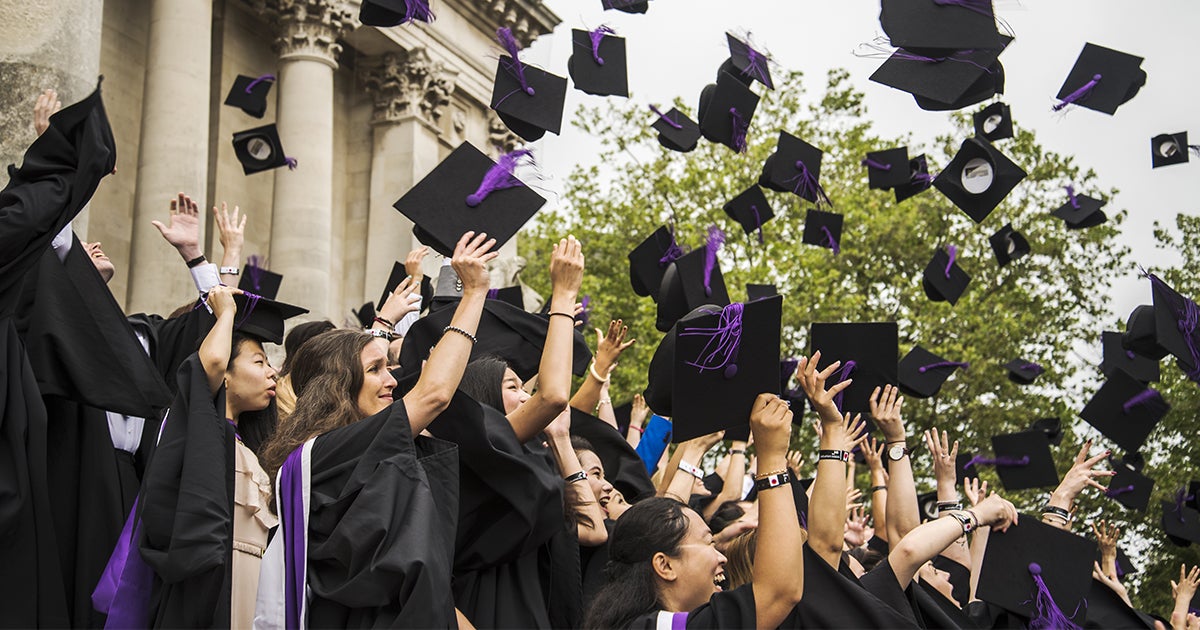
by Keisha Russell • 4 min read
May is graduation season. It’s a time when many students accomplish a huge milestone in their lives. Valedictorians all over the country will deliver commencement speeches and express gratitude for all the people that helped them complete school. Unfortunately, some schools will use this as an opportunity to advance the prevailing cancel culture by censoring graduation speeches and scrubbing them of any religious references.
Consider the story of First Liberty client Moriah Bridges. Moriah’s school censored her graduation speech because it included a prayer mentioning her faith in Jesus Christ. While Moriah’s school and many others claim that the Establishment Clause of the First Amendment requires them to scrub religion from the schoolhouse, the law demands that schools not censor religious expression.
Student graduation speeches constitute private speech, not government speech, and private speech is not subject to the Establishment Clause. Even more, a student’s statements do not transform into government speech simply because they are delivered in a public setting or to a public audience.
Another great example is the story of the Texas Kountze cheerleaders. The Kountze cheerleaders decided to put inspiring messages on the student-controlled, run-through banners at the high school football games. But the school district vehemently objected and banned the girls from using phrases like, “If God be for us, who can be against us.” After First Liberty defended the cheerleaders in a legal battle that lasted over six years, Texas repeatedly declared that the run-through banners were private, student speech, and that the school district was forbidden from censoring them. It was a resounding victory for religious freedom.
The main point is that there is a “crucial difference between government speech endorsing religion, which the Establishment Clause forbids, and private speech endorsing religion, which the Free Speech and Free Exercise Clauses protect” (Board of Ed. v. Mergens, 1990).
But the law goes even further to protect students’ religious liberty rights in school. Schools cannot establish a “religion of secularism” by showing hostility to religion, thus preferring students who believe in no religion over those who do believe (School District of Abington Township v. Schempp, 1963). This kind of censorship is called viewpoint discrimination, and it is unconstitutional (Rosenberger v. Rector & Visitors of Univ. of Virginia, 1995).
Just last year, a New York high school banned freshman, Daniela Barca, from creating a Christian club at the school, even though the school had many extracurricular clubs. The officials claimed a Christian club would be “exclusive,” despite the fact that the officials were excluding Christianity. First Liberty defended Daniela as she bravely stood up for her rights. First Liberty quickly forced the school to allow Daniela to establish a Christian club.
Brave young people like Moriah, the Kountze cheerleaders, and Daniela are the ones we love to defend because they show many other Americans what religious freedom is all about. The law is clear that students and teachers do not shed their constitutional rights at the schoolhouse gate (Tinker v. Des Moines Indep. Sch. Dist., 1969). Right now, it is vital that religious freedom thrive in our schools where the next generation of leaders are bred.
This graduation season, we encourage students all across the country to celebrate embarking on their new journey in life by rejoicing in the religious freedom we have in America. Anyone who needs help should reach out to First Liberty to make sure their rights are not taken away.